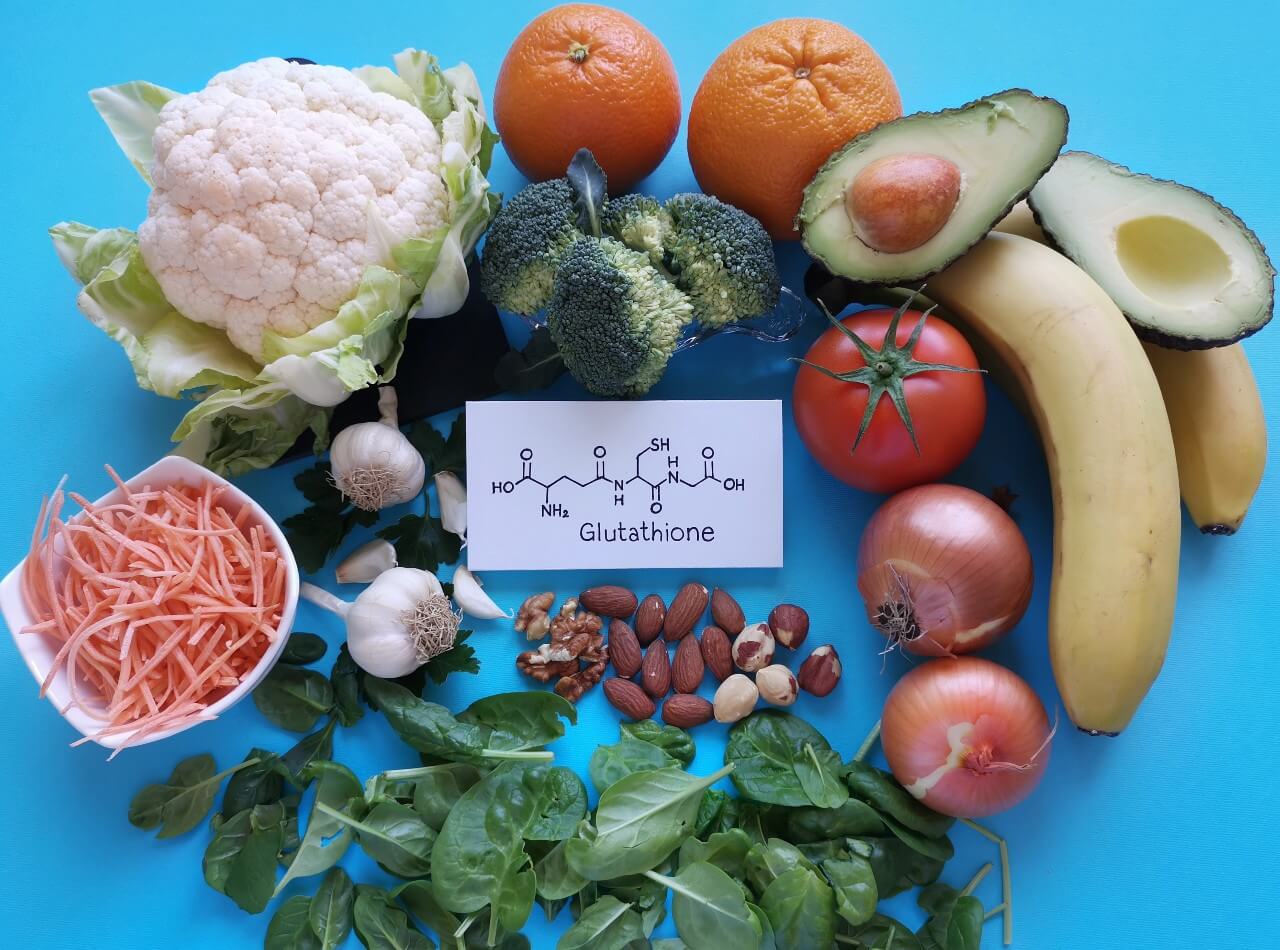Glutathione is an antioxidant that’s composed of the amino acids glycine, glutamine, and cysteine. It’s produced in the body but its levels can be reduced due to old age, stress, poor nutrition, and toxins. Glutathione can also be introduced to the body topically, intravenously, by inhalation, or orally in liquid and capsule form.
If you’re planning to supplement your diet with glutathione, learn more about this antioxidant in this article. You can also visit this link for more information.
1. Foods That Boost Glutathione Levels

Glutathione has sulfur molecules, which could be the reason why sulfur-rich foods can help increase the natural production of glutathione in the body.
The following foods can help enhance glutathione levels in the body:
- Eggs
- Garlic, onions, and other allium vegetables
- Nuts
- Lean protein like fish and chicken
- Whey
- Flaxseed
- Cruciferous vegetables, like cauliflower, broccoli, and bok choy
2. Sleep Affects Glutathione Levels
It’s believed that glutathione can be negatively affected by insomnia. This means that even if you eat foods that boost your glutathione levels, you may not get the most of it if you’re always sleep-deprived. Thus, getting enough sleep daily can help improve glutathione levels in the body.
3. Glutathione Lowers Oxidative Stress
When the body’s ability to fight free radicals is overcome by a faster production of free radicals, then oxidative stress happens. The bad news is that high levels of oxidative stress may lead to various diseases, including cancer, diabetes, or rheumatoid arthritis.
Fortunately, glutathione in the body will help reduce the impact of oxidative stress and lower your risk of the mentioned diseases.
4. Reduces Cell Damage in Fatty Liver Disease
Glutathione helps improve enzyme, protein, and bilirubin levels in people with fatty liver disease. Conversely, a deficiency in glutathione and other antioxidants in the body may result in cell death in the liver that leads to fatty liver disease.
When glutathione is intravenously given in high doses to sufferers of fatty liver disease, it showed a reduction of cell damage in the liver as shown by the reduced levels of malondialdehyde, which is a cell damage marker. In another study, it was found that oral intake of glutathione at 300 milligrams per day and an active lifestyle among people with nonalcoholic fatty liver showed positive results.
5. Enhance Insulin Resistance Among Older People
It’s natural for glutathione levels to reduce with age. A study explored how glutathione affects insulin resistance and weight management among older individuals. It showed that low glutathione levels are linked to higher fat storing and less fat burning in older individuals. Older individuals were given glycine and cysteine to improve glutathione levels, which showed improvements in two weeks.
6. Improve Mobility Among Sufferers of Peripheral Artery Disease
When your peripheral arteries are clogged with plaque, it results in peripheral artery disease. Glutathione is said to improve circulation among sufferers of this disease, improving their ability to walk pain-free.
7. Reduce Parkinson’s Disease Symptoms
Parkinson’s disease currently doesn’t have a cure. It affects the central nervous system and has symptoms like tremors. It’s believed that glutathione can reduce rigidity and tremors.
Although more study is needed, initial findings say that glutathione may improve a sufferer’s quality of life.
8. Helps Prevent Autoimmune Diseases
Autoimmune diseases include celiac disease, rheumatoid arthritis, and lupus. Chronic inflammation that’s triggered by autoimmune diseases is linked to higher oxidative stress. Since glutathione is known to lower oxidative stress, it may help prevent these autoimmune diseases.
Autoimmune diseases are known to attack the mitochondria in some cells. However, glutathione may protect the mitochondria by getting rid of free radicals.
9. Makes the Skin Lighter
Glutathione is most famous for its ability to lighten the skin, but it’s just a side effect of its many functions. Basically, when a person uses glutathione as a supplement, it helps lighten their skin by affecting its melanin production in three ways:
- Reducing tyrosinase activity – tyrosinase is an enzyme that helps in melanin production, giving your skin color. Glutathione is known to interfere with this enzyme’s process, thus reducing melanin production.
- Changes eumelanin to pheomelanin – Not everyone knows that there are two kinds of melanin in the body, and its ratio helps determine our skin color. Pheomelanin is yellow-red in color, while eumelanin is blackish-brown. High doses of glutathione are said to make our skin produce more pheomelanin, which makes the skin lighter.
- Affects melanocytotoxic agents – Since glutathione controls the depigmenting capabilities of melanocytotoxic agents, its side effect is lightening the skin pigment.
10. Improves Skin Elasticity and Hydration
Oral administration of glutathione supplements has been shown to improve skin hydration, reduce wrinkle formation, and improve skin elasticity.
11. Makes The Skin Look More Glowing
Since glutathione is an antioxidant that helps get rid of the body’s toxins, it leads to a more glowing, radiant skin.
12. Risks and Side Effects
If you eat foods that help naturally enhance your body’s production of glutathione, it may not have any risks or side effects. But if you take supplements without consulting a healthcare professional, it may bring possible side effects, such as:
- Bloating
- Stomach cramps
- Allergic reactions
- Trouble breathing
13. Reduce the Effects of Uncontrolled Diabetes
High blood sugar levels are associated with reduced amounts of glutathione, which can result in tissue damage and oxidative stress. Dietary supplements, such as glycine and cysteine, are found to increase glutathione levels, consequently reducing oxidative damage and stress in people with high sugar levels.
14. Can Help Minimize Respiratory Disease Symptoms
A by-product of glutathione is n-acetylcysteine, which is known to reduce inflammation and treat cystic fibrosis and asthma.
15. Highest Glutathione Concentrations
Although it’s been said that you can increase the glutathione levels in your body by including specific foods in your diet, pasteurization and cooking are said to dramatically reduce its levels. However, you can enjoy the highest glutathione concentrations in freshly-picked vegetables and fruits, unpasteurized milk, and raw or very rare meat.
Final Thoughts

Glutathione is a helpful antioxidant that’s naturally produced in the body. However, its levels in the body can reduce due to stress, aging, or toxins. Finding ways to enhance the glutathione levels in your body has been found to have numerous health benefits.




